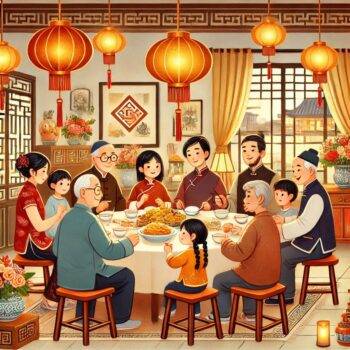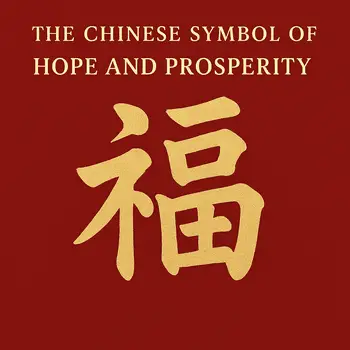
China, a country with a rich tapestry of traditions and enduring cultural values, places immense importance on respecting elders and recognizing hierarchies.
These practices, deeply rooted in Confucian philosophy and shaped by centuries of history, influence both personal and professional interactions.
However, as modernity and globalization reshape societal norms, these traditions face new challenges.
This article explores the significance of respecting elders and hierarchies in China, delves into their historical and cultural roots, and provides practical insights for understanding and navigating these values in contemporary contexts.
Understanding Chinese Cultural Values
Confucian Philosophy and Its Influence
The foundation of respect for elders and hierarchies in China lies in Confucianism, a philosophy that has shaped Chinese society for over two millennia.
A central tenet of Confucianism is filial piety (孝, xiào), which emphasizes devotion, care, and respect for one’s parents and ancestors. This concept extends beyond the family to broader societal relationships.
Confucius outlined the “Five Relationships” (五伦, wǔ lún), which serve as a framework for societal harmony:
- Ruler to subject
- Father to son
- Elder brother to younger brother
- Husband to wife
- Friend to friend
Each relationship is hierarchical, with clear expectations of respect and responsibility.
For more on Confucianism, see Stanford Encyclopedia of Philosophy.
The Role of Family in Chinese Society
Family is the cornerstone of Chinese culture. Multigenerational households are common, and elders often hold significant influence as decision-makers and custodians of family traditions.
This structure fosters a culture of respect, ensuring harmony and continuity within the family unit.
For example, during family gatherings, younger members are expected to show deference to elders by serving them food or tea first.
This practice reflects the deeply ingrained value of prioritizing the needs and comfort of older generations.
Elders in Chinese Society
Why Elders Are Highly Respected
In Chinese culture, age is synonymous with wisdom.
Elders are revered for their life experiences and are often seen as the moral and intellectual guides for younger generations.
Their role as decision-makers within families and communities reinforces their authority and respect.
Celebrating Elders in Traditions
Chinese festivals often highlight the importance of elders.
For instance, the Chongyang Festival (重阳节, Chóngyáng Jié), also known as the Double Ninth Festival, is dedicated to honoring elders.
Families gather to celebrate, share meals, and express gratitude for the contributions of older generations.
Learn more about the Chongyang Festival here.
Understanding Hierarchies in China
Social and Professional Hierarchies
Respect for authority and seniority permeates all levels of Chinese society.
Titles and ranks carry significant weight, and addressing individuals correctly is essential for maintaining decorum.
For example, in professional settings, it is customary to address colleagues by their titles (e.g., Manager Li or Director Wang) rather than their first names.
Age and Seniority in Decision-Making
Seniority often dictates decision-making, particularly in professional contexts.
Younger individuals are expected to seek the counsel of older colleagues, valuing their insights and experience.
This practice is especially evident in traditional industries and family-run businesses.
How Respect Is Shown in Daily Life
Language and Titles
Language plays a critical role in expressing respect.
Terms like “爷爷” (yéyé, grandfather) and “奶奶” (nǎinai, grandmother) are often used to address older individuals, even outside the family context.
This linguistic practice reflects the cultural emphasis on age and seniority.
Gestures of Respect
Simple acts, such as offering a seat to an elder, pouring tea, or standing when an elder enters the room, are common ways to show respect.
These gestures, though small, carry profound cultural significance.
Respect in Business Settings
The Role of Hierarchy in Meetings
In business meetings, seating arrangements follow strict hierarchical rules.
Senior members are seated in prominent positions, and addressing them first demonstrates acknowledgment of their status.
For a detailed guide on Chinese business etiquette, visit China Briefing.
Importance of Gift-Giving
Gift-giving is a cultural norm in China, often used to express gratitude and respect.
When dealing with seniors or superiors, thoughtful gifts—such as tea, specialty foods, or symbolic items—can strengthen relationships.
However, it is important to avoid overly extravagant gifts, as they may be perceived as inappropriate or insincere.
Challenges and Modern Changes
Balancing Tradition and Modernity
Urbanization and Western influences are reshaping traditional values in China.
Younger generations, particularly in urban areas, are adopting more individualistic lifestyles, which can sometimes conflict with traditional expectations of respect and hierarchy.
For example, the rise of nuclear families in cities has reduced the prevalence of multigenerational households, potentially weakening the influence of elders.
However, efforts such as cultural education and family-oriented activities aim to preserve these cherished customs.
Struggles in Maintaining Traditions
Generational gaps can lead to friction, as younger individuals may prioritize personal goals over traditional family obligations.
Social media and technology also play a role in changing how respect is expressed, with virtual gestures (e.g., sending digital red envelopes during festivals) becoming more common.
Why Respecting Elders and Hierarchies Matters
Cultural Harmony
Respect for elders and hierarchies fosters stronger relationships and promotes societal stability.
It ensures that intergenerational connections thrive, benefiting families and communities as a whole.
Global Business Relations
For foreigners engaging with Chinese counterparts, understanding these values is essential.
Respecting local etiquette—such as addressing individuals by their titles, observing seating arrangements, and offering small gestures of courtesy—builds trust and facilitates successful collaborations.
Practical Tips for Foreigners
- Use Respectful Language: Address individuals by their titles or honorifics, and avoid overly casual speech.
- Observe Gestures of Respect: Offer seats to elders, pour tea, and follow local customs during meals or meetings.
- Be Mindful of Hierarchies: Pay attention to seating arrangements and the order of speaking in professional settings.
- Give Thoughtful Gifts: When appropriate, present small, meaningful gifts to express gratitude or respect.
- Learn Key Phrases: Familiarize yourself with basic Chinese phrases for showing respect, such as “谢谢” (xièxiè, thank you) and “请” (qǐng, please).
Conclusion
Respecting elders and hierarchies is more than a cultural expectation in China—it is a way of life.
These practices, deeply rooted in history and tradition, emphasize the importance of relationships, wisdom, and harmony.
By understanding and embracing these values, individuals can deepen their appreciation of Chinese culture and foster stronger personal and professional connections.
For further reading, explore:


